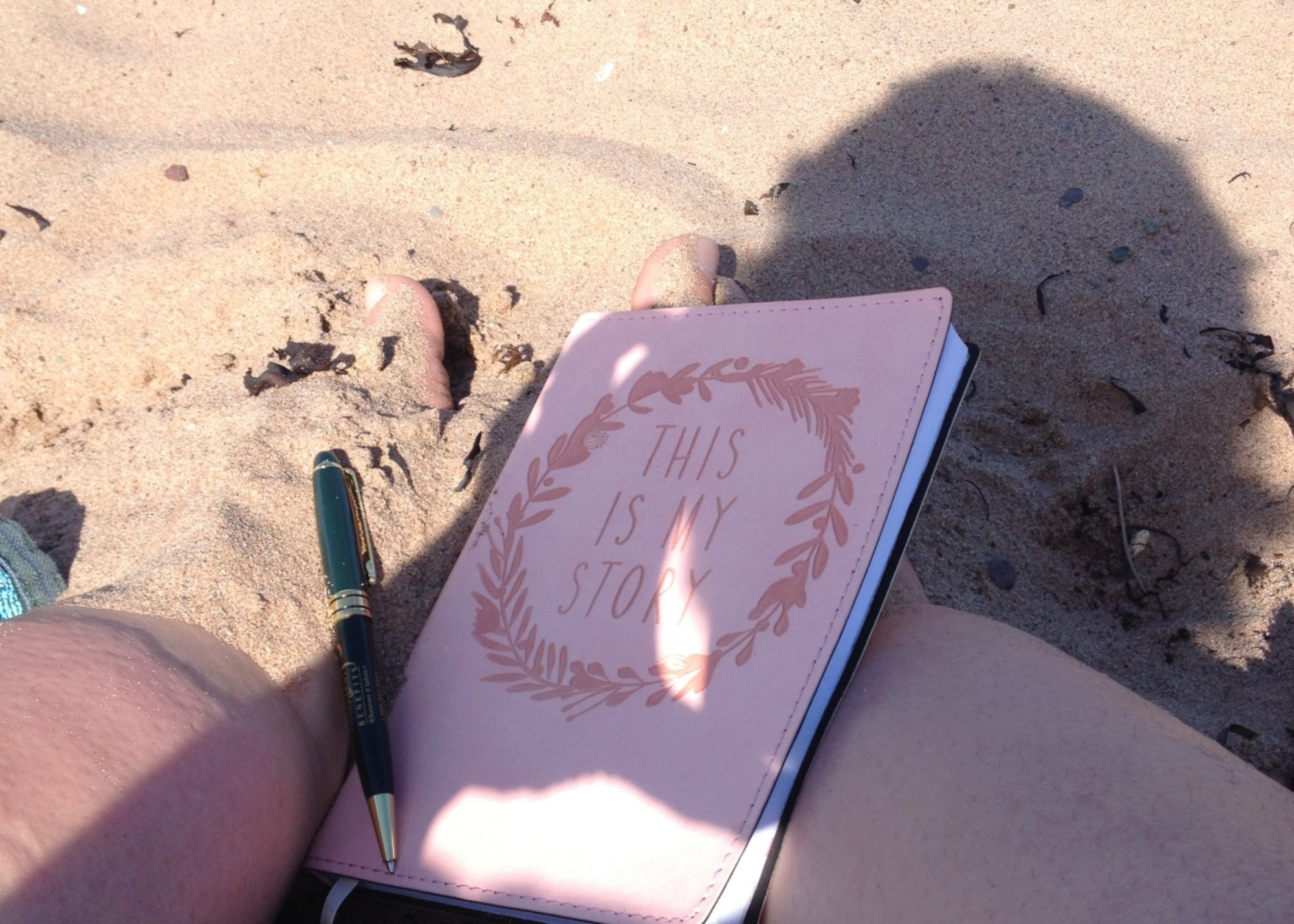We are warmly welcomed into a room lined with books – on shelves, tucked under the coffee table, footing the window seat, surrounded by a view of water glinting defiantly under clouds leaden with the last of a rare summer rain. High on an island hilltop, it was a space by and for book lovers but at first glance no place for a mermaid.
“I must be a mermaid … I have no fear of depths and a great fear of shallow living,” Anais Nin once wrote and by no coincidence I am drawn to the image of mermaids and the murky depths they call home. On this day, however, I surface in response to the generous invitation of Tuesdays at Two. This book club of gracious and well-read women has been meeting for a decade, longer than I’ve been writing books, and devote an annual afternoon to hosting a writer in the flesh. They list of a who’s who of local and CanLit guests of the past and I hear the tune ‘One of These Things is Not Like the Other,” from my childhood formed by Sesame Street.
Yet they have invited me here as part of this distinguished list to talk about Orchids for Billie and the little boy I created. In spontaneous acknowledgement of the unique story behind the story, they have widened their invitation to include the man whose life inspired the Finding Maria series, the real ‘little Jack,’ to speak to the experience of having one’s memories and experience crafted into a story and shared with the world. Even more rare than this day of rain during our dry summer is the opportunity for the two of us to speak together on this story we created. For more than a decade we have worked, explored and collaborated as a team, yet usually in the privacy of a one-on-one meeting or solitary reflection and response. This was a test: could I let go of my creation enough to let the person speak for himself? Would I hold my own in conversation or revert to detached observer and slip off into the depths? Would this public airing of our unseen connection be appreciated or painful?
In a word, it was brilliant.
In the years since I began writing the Finding Maria series I’ve come to own my desire for intense conversations, with no question too deep or topic too touchy to explore. Yet the art and beauty of conversation is too often lost in the world of tweets, sound bytes and fear: of offending, of intruding, of being nosy. The group gathered on the hilltop this silvery summer day was none of those things, nor could they ever be. They are informed, sincere, and genuinely interested in the story and the people who inspired it, and in that environment, there is no greater safety to explore, dive, and peer into darkened corners and blink at the revelations. It is the environment I first discovered in conversation with the man who quietly became my partner in business and creation and today sits next to me, sharing his story in a clarity of voice that our creation helped reveal. As one book became two, then three and four and the demands of our commercial venture took over, I had forgotten the beauty of revelation in the written word. I had forgotten how insightful and engaging that little boy could be.
Why?
While writing as a vocation is intensely rewarding and deeply revealing, it to me is wholly unattractive. Painters, potters and weavers, for example, are a joy to watch, their deft movements giving rise to a creation that takes shape before your eyes. Most days I feel like a human seive, absorbing all of life’s gobs and bits and chunks, then tasked with the process of straining our a clear, refined stream of consciousness ready to be sipped and savoured. Who on Earth wants to watch that?
For the longest time, not me and for years, I could do it without watching, thinking, or above all feeling as I quickly sifted through facts for the assignment at hand. Writing the Finding Maria series for the first time kept me in place, immersed in the chunks and bits, and I’ve too often responded in panic or rebellion. Now called to write my own story in the series, I am up to my eyeballs in the mess, the pulp, the unwanted and long-forgotten scraps, and it is easy to look away and pretend to be elsewhere, in a world too busy for such straining and sorting, in a life too full for new possibilities, in a space where feelings are to be toned down or ignored.
Tuesday’s conversation didn’t cut through the mess, but embraced it. Orchids for Billie emerged from chaos to offer a story of hope. It invited readers from many places, spaces and perspectives to a single room, on a single day, to add their own layers and colours to the words on the page. I sat in the presence of many wonderful stories by sharing the one I wrote, steeped in courage from the only man in the room, seated next to me, who outwardly chose none of this bizarre journey that is writing and publishing but is both allowing the unseen to take us where it will and permitting his story to be the interface.
A business coach and dear friend once told me I overthink my blogs. They don’t need to be so deep. They can be superficial, lighter, how-to hints or top 10 lists, and search rankings would prove her right. But I have floated in the shallow end for too long. This is deep and I like it there. Granted, it’s a great place to hide. But there is also great safety in knowing someone will invite you to surface every now and then and connect with those who would support and be supported by discoveries from the depths.
On a hilltop, on an island, there is no place to hide and in such a place, who would want to? To the ladies of Tuesdays at Two, may you go on to discuss hundreds of books and treat more lucky authors to an afternoon of your caring conversation. To those of you book lovers not in a club, start one. And to my partner in creation, thank you for your quiet yet unshakeable presence that invites me to shine a little bit more, added light by which to sort the flotsam from the jetsam as the quest for Book Five continues.
Thanks for reading.
– Jennifer
Jennifer Hatt is author of the Finding Maria series and partner in publishing company Marechal Media Inc.

